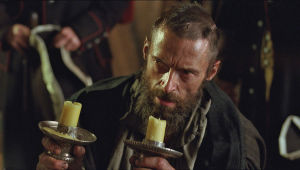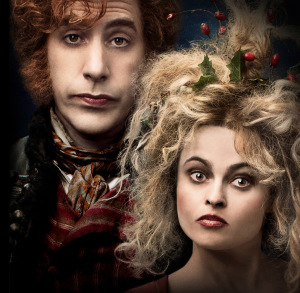 I’ve converted my den into a writing sanctuary, filled with souvenirs from my vicarious and real lives. On the corners of my desk are two matching silver candlesticks to remind me of the lessons learned from reading Les Miserables.
I’ve converted my den into a writing sanctuary, filled with souvenirs from my vicarious and real lives. On the corners of my desk are two matching silver candlesticks to remind me of the lessons learned from reading Les Miserables.
Hugo, Melville, Tolkien, Twain, and Lewis have all taken me on unforgettable journeys, and it might sound cliché but their writings have had a profound effect on my mortal existence. This post was meant to be about them, but I was invited on a journey last week by another amazing author and I must write about that experience.
David Farland is the author of the Runelords and many other works of fiction. And his books are fantastic, but that isn’t what I’m writing about in this post. Farland pulled back the curtain and gave us a look behind the scenes of becoming a successful author.
When I first started writing, I tried my best to adopt Victor Hugo’s omniscient style of point of view and was surprised when my writing was met with strong criticism for doing so. Farland explained that two centuries ago, many writers would jump around the characters’ minds much like a movie in omniscient POV, but with the developments of film this style of writing no longer worked for the readers. The one thing that books offer above film today is the ability to become intimately involved in the mind of the Point of View character.
Farland’s classes are offered online and in person. I’ve been to similar courses before but was never taught by this level of insight and genius. I have been struggling with several short stories that I started to write but had difficulty finishing because I didn’t know where to take them. I had strong characters and setting but I lacked conflict. I struggled to place my creations into hard situations that might cause them to change.
Jean Valjean is my all-time favorite character. Analyzing it now, I see that what made me fall in love with him, as a protagonist was the pain and suffering he endured. The irrationality and unfairness of receiving a 19 year prison sentence for stealing a loaf of bread played on the Man vs. Society conflict in the story. (I know it was compounded because he tried to escape several times). And the bread wasn’t even for him, but his starving nieces and nephews, which endeared me to him further. Farland called this “petting the dog.”
In Farland’s class I learned that characters of the story didn’t necessarily need to be people. I used to think Javert was the antagonist of the story but now I see him as the contagonist. The real antagonist is society, selfish and unwilling to help the miserables.
Javert and Valjean were both good and bad. They both believed they knew what was right and for the most part tried to live according to their moral code. Both illustrated the Man vs. Society conflict and in the end it turned out that society was wrong. Valjean refused to bend his moral code and was blessed by providence while Javert struggled to see a world beyond himself and so he took his own life.
 Hugo’s genius is found in how his characters struggle through the conflict they are placed in and how their conflicts play off of the other characters. For instance, most that have only seen the play version of the story do not realize that Eponine is Gavroche’s sister, children of Mr. and Mrs. Thenardier who changed their name when they moved to Paris. One of the most touching parts of the story to me is at the wedding party when the Thenardiers show up to loot the guests, seemingly celebrating in the wake of the barricade where they lost two of their children who saw something greater than themselves and were willing to sacrifice their lives for that cause.
Hugo’s genius is found in how his characters struggle through the conflict they are placed in and how their conflicts play off of the other characters. For instance, most that have only seen the play version of the story do not realize that Eponine is Gavroche’s sister, children of Mr. and Mrs. Thenardier who changed their name when they moved to Paris. One of the most touching parts of the story to me is at the wedding party when the Thenardiers show up to loot the guests, seemingly celebrating in the wake of the barricade where they lost two of their children who saw something greater than themselves and were willing to sacrifice their lives for that cause.
Farland showed us how to develop such a story by brainstorming character conflicts. Not just the protagonist against the antagonist but analyzing how every character would interact with every other character. There may be multiple protagonists or antagonists or contagonists and so on. As I have employed this type of brainstorming, I’ve been able to finish my stories.
I am grateful to the masters of old like Victor Hugo and to the masters of today like David Farland. I’ve added a book to my writing sanctuary, Million Dollar Outlines.
